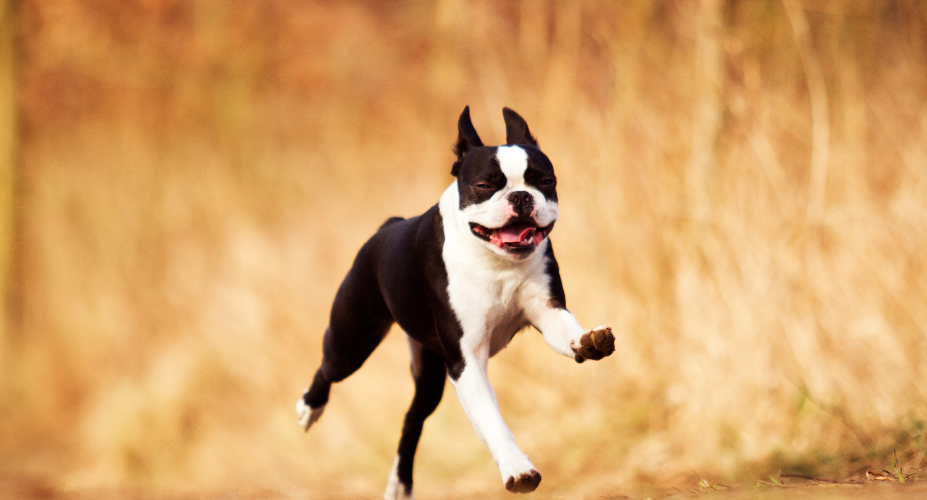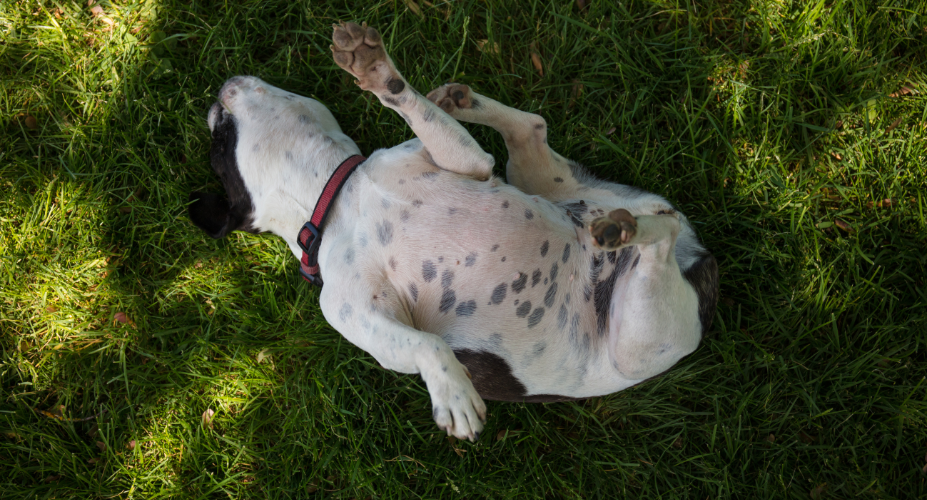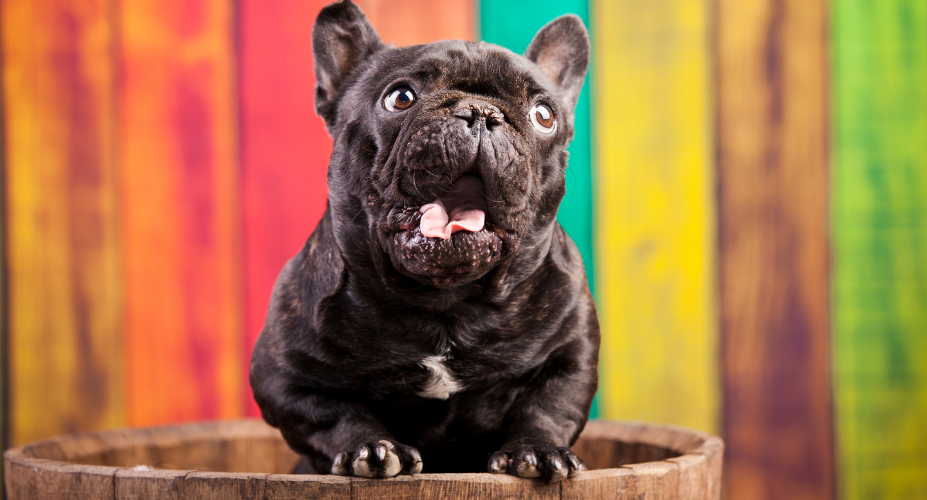French Terrier vs French Bulldog: A Comprehensive Comparison
French Terrier vs French Bulldog: A Comprehensive Comparison
When it comes to choosing between a French Bulldog and a Boston Terrier, it's like deciding between two irresistible desserts – each with its own unique flavor and charm that will leave you craving more.
The French Bulldog, with its adorable "bat ears" and stocky frame, is like a decadent chocolate truffle – rich, indulgent, and impossible to resist. This breed's British origins and French refinement make it a true delicacy in the canine world, recognized by The Kennel Club in the late 19th century. The Frenchie's compact build and affectionate nature make it the perfect treat for urban dwellers and those with limited space, like a bite-sized dessert that packs a punch of flavor.
The Boston Terrier, often mistakenly called a "French Terrier" due to its resemblance to the Frenchie, is like a classic vanilla cupcake with a twist. Originating in the United States, this breed stands out with its tuxedo-like coat and friendly, intelligent demeanor, like a cupcake topped with a dapper bowtie. The Boston Terrier's gentle and affectionate nature makes it a sweet addition to any household, like a comforting dessert that never fails to bring a smile to your face.
As with any indulgence, both breeds come with their health considerations, such as breathing issues due to their flat faces and sensitivity to cold temperatures. However, with proper care and attention, these sweet companions can live up to 12-14 years, like a dessert that you can savor for a long time.
So, whether you prefer the rich indulgence of a French Bulldog or the playful sweetness of a Boston Terrier, choosing between these two breeds is like picking your favorite dessert. This delightful decision will bring joy and love to your life for years to come.
French Terrier vs French Bulldog Overview
|
Characteristic |
French Bulldog |
French Terrier (Boston Terrier) |
|
Recognition |
Recognized by The Kennel Club in 1906 |
Recognized by The Kennel Club in 1914 |
|
Size |
Muscular build, larger bone structure, weight between 18 to 30 pounds
|
Lighter build, longer legs, generally weighs less than 25 pounds
|
|
Barking |
Less vocal compared to Boston Terriers |
May bark more but not as vocal as other breeds |
|
Trainability |
Can be stubborn; requires consistent training |
Quick learners, good listeners, and obedient |
|
Health Concerns |
Prone to BOAS, skin issues, allergies, and other health issues
|
Generally healthier but can have patellar luxation, eye problems, and allergies |
|
Exercise |
Requires gentle exercise; sensitive to heat due to brachycephalic nature
|
Requires more active play and longer walks |
|
Grooming |
Weekly brushing, regular ear cleaning, and dental care
|
Minimal grooming, regular brushing, and dental care |
|
Personality |
Laid-back, adaptable, suitable for apartment living
|
Energetic, alert, intelligent, suitable for various living situations
|
|
Utility Group |
Member of the Utility breed group |
Also a member of the Utility breed group |
|
Distinctive Features |
Bat-like ears, square head |
'Tuxedo-like' markings, pointed ears, level topline |
Physical Characteristics

The French Bulldog and French Terrier each have unique traits that set them apart. The French Bulldog, known for its distinctive bat-like ears and square-shaped head, is a compact breed with a stocky body. It typically weighs between 18 and 30 pounds and stands at a maximum height of 13 inches. The French Bulldog's coat is short, fine, and smooth, and it comes in a variety of colors, including brindle, cream, fawn, and white.
On the other hand, the French Terrier, or Boston Terrier, is characterized by its pointed ears and rounder head. It has a leaner, lighter body compared to the French Bulldog, generally weighing less than 25 pounds. The Boston Terrier stands taller than the French Bulldog, with a maximum height of 17 inches. Its coat is also short and fine, but it is known for its characteristic 'tuxedo-like' markings.
Despite their differences, both breeds share some similarities. They are both small, compact breeds, making them popular choices for city dwellers. They also both belong to the brachycephalic (flat-faced) category of breeds, which gives them their distinctive smooshy faces. However, these physical characteristics also contribute to some health problems, which we will discuss in the following sections.
Temperament and Behavior
The French Bulldog, with its amiable and adaptable temperament, has captured the hearts of many as a breed that fits seamlessly into various home environments. Known for their laid-back demeanor, French Bulldogs are well-suited for apartment living and do not require extensive outdoor exercise, making them ideal for city dwellers or those with limited space.
Their affectionate nature and loyalty to their owners make them excellent companions, although they may need time to warm up to other pets and small children. French Bulldogs are also known for their desire to please, which can make training a rewarding experience. However, their strong-willed nature may require a consistent and patient approach to reinforce positive behaviors.
The French Terrier is an intelligent and lively breed that exudes a gentlemanly charm. They are quick learners, eager to please, and known for their friendly disposition regarding humans and other animals.
This breed's alertness and bursts of energy make them fun playmates, yet they can also enjoy moments of relaxation with their family. The French Terrier's adaptability means they can thrive in various living situations, from spacious homes to cozy apartments, as long as they receive adequate attention and mental stimulation. Their sociable nature makes them a joy to have around, and they often get along well with children, making them a versatile choice for families.
Health Concerns

French Bulldogs are a charming and lovable breed, but they are also known to have a number of health concerns. One of the most common health issues in French Bulldogs is Brachycephalic Obstructive Airway Syndrome (BOAS), a condition that arises due to their flat-faced physical characteristics.
This can lead to breathing difficulties and makes them more susceptible to heat stroke. French Bulldogs are also predisposed to skin issues, including allergies and skin fold dermatitis, which require regular care and attention.
Other health concerns include eye issues such as dry eye and conjunctivitis, and skeletal problems like Intervertebral Disc Disease (IVDD) and Patella luxation. It's important to note that these health issues can significantly affect the quality of life of a French Bulldog and can lead to extensive veterinary expenses.
The French Terrier is generally a healthier breed than the French Bulldog. However, like all breeds, it is not completely free from potential health issues. Due to its prominent eyes, it can be prone to certain eye problems, including cataracts and corneal ulcers.
They can also suffer from Patellar Luxation, a condition in which the kneecap moves away from its original position. Additionally, some Boston Terriers may be prone to allergies, which can lead to skin issues. Potential owners should be aware of these issues and ensure regular veterinary check-ups to maintain their Boston Terrier's health.
Care and Maintenance
Caring for a French Bulldog involves a combination of regular exercise, proper grooming, and attentive training. Despite their compact size, French Bulldogs require regular, gentle exercise to maintain their joint health and manage their weight. Low-impact activities such as short walks or light indoor play are ideal, as French Bulldogs can be sensitive to heat and overexertion due to their brachycephalic nature.
Grooming for a French Bulldog is relatively straightforward due to their short, smooth coat. Weekly brushing can help manage shedding and keep their coat healthy. Regular ear cleaning is also necessary to prevent infections, and attention should be given to facial wrinkles to keep them clean and free from irritation.
Dental care is another important aspect of their grooming routine, as French Bulldogs can often have dental issues. Regular brushing of their teeth is recommended to maintain good oral health.
Training a French Bulldog can be a rewarding experience. They respond well to positive reinforcement and like games, making training sessions fun and engaging. However, their strong-willed nature may require a consistent and patient approach to training.
French Terriers are generally easy to care for. They have a short, smooth coat that needs minimal grooming. Regular brushing can help manage shedding and keep their coat looking its best. Like French Bulldogs, Boston Terriers also require regular exercise. However, their energetic nature may require more active play sessions and longer walks.
Training a Boston Terrier can be a joy due to their intelligent and eager-to-please nature. They are quick learners and perform well with positive reinforcement. Regular socialization from a young age can also help them become well-rounded dogs.
In terms of health care, both breeds require regular vet visits to ensure their health and address any potential health concerns promptly. Regular vaccinations and preventative medications are also essential to keep them in good health.
Choosing the Right Breed

If you are someone who enjoys a laid-back companion and lives in a smaller space, such as an apartment, a French Bulldog may be the perfect match for you. Their low exercise requirements and adaptable nature make them ideal for less active owners or those with limited outdoor space.
However, it is crucial to be mindful of the financial and emotional investment, as French Bulldogs can come with health challenges that may require additional care and veterinary expenses.
If you are looking for a more energetic and alert dog that still fits well in a smaller living space, a French Terrier could be the breed of choice. They are known for their intelligence and friendly demeanor, making them great family pets that get along well with children and other animals.
While they do require more exercise than French Bulldogs, their playful and affectionate nature can make them delightful companions for those with a more active lifestyle. Before making your final decision, consider the grooming, exercise, and training needs of each breed. Both require regular grooming and dental care, but the French Bulldog's health concerns may necessitate more frequent veterinary visits.
Training should be done with patience and consistency for both breeds, utilizing positive reinforcement to encourage good behavior. Ultimately, the choice between a French Bulldog and a French Terrier should align with your personal preferences and the amount of time and resources you are willing to dedicate to your new furry friend.
FAQs
What are the main differences between a French Bulldog and a French Terrier?
French Bulldogs have a muscular build and a larger bone structure, while French Terriers are more leggy with longer legs. French Bulldogs can be a bit stubborn, while French Terriers are quick learners and obedient.
Which breed is more active?
French Terriers are generally more active than French Bulldogs. They love running, jumping, and fetch, while French Bulldogs are more laid-back.
Which breed is easier to train?
Both breeds are easy to train and make great dogs for first-time owners. However, French Bulldogs can be a bit stubborn, so it's important for owners to be consistent in their training.
Conclusion
The French Bulldog, with its laid-back demeanor and adaptable nature, is well-suited for less active owners or those living in smaller spaces. However, it does come with potential health challenges that require additional care and veterinary expenses.
The French Terrier is a more energetic and alert breed that is known for its intelligence and friendly demeanor. They are great family pets that get along well with children and other animals, making them a versatile choice for families.
When choosing between these two breeds, consider your lifestyle, living conditions, and personal preferences. Both breeds require regular grooming and dental care, but the French Bulldog's health concerns may necessitate more frequent veterinary visits.
Training should be approached with patience and consistency for both breeds, utilizing positive reinforcement to encourage good behavior. Interestingly, despite their differences, these two breeds are often mistaken for each other due to their similar physical characteristics.
It is easy to differentiate between French Bulldogs and French Terriers by looking at their body shape, head shape, and ear shape. French Bulldogs have a stocky body, a square head, and ears that resemble those of a bat. French Terriers have a leaner body, a rounder head, and ears that are pointed.
Whether you decide on a French Bulldog or a French Terrier, both breeds can bring happiness and companionship to the right home. It's all about finding the breed that best fits your individual needs and circumstances.







